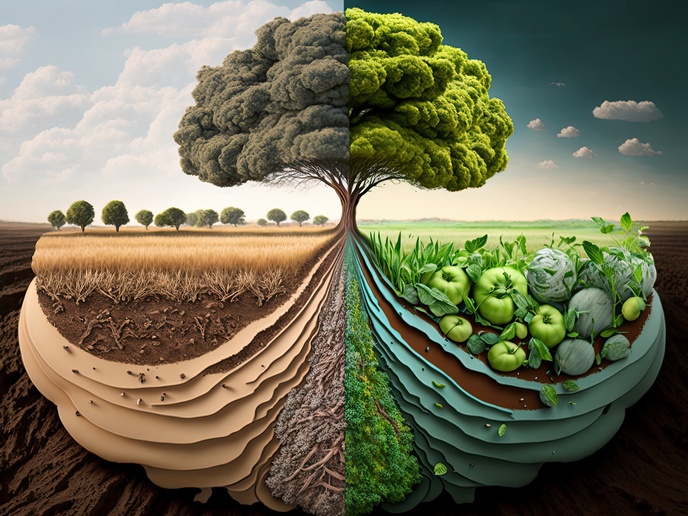Tackling global food challenges with soil
How can we keep on providing healthy food to an ever-increasing global population given the way we produce, process and distribute food? Our current food systems are unsustainable and have implications for food safety, health, the environment, the economy and social equality. Enter the EU-funded CIRCLES project that is finding solutions for our planet’s future food challenges by investigating the potential of microbes in the food system. A recent interview with CIRCLES project partner Natural Resources Institute Finland (Luke) focuses on the important role that healthy soils play in feeding the world’s growing population. We need soil to produce the vast majority of our food, either directly to grow our fruit, vegetables and grains, or indirectly to grow feed for the livestock we raise for meat and dairy products. However, intensive farming practices have led to one third of the world’s soils being degraded and losing some of their ability to support plant growth.
Why bacteria and fungi are important
Luke research professor Taina Pennanen begins by explaining the importance of microbiomes – communities of bacteria, fungi and viruses – that inhabit the soil: “Soil microbiomes play a vital role in maintaining the balance of ecosystems by performing functions such as decomposition, formation of soil aggregates, cycling of nitrogen, pathogen control, uptake of nutrient and water for plants in natural ecosystems. They also play a key role in carbon sequestration.” According to Prof. Pennanen, microbes such as bacteria and fungi play a crucial role in helping to reduce the loss of carbon in the soil by turning the carbon that plants take in from the air into a more stable form in the soil. “This helps to prevent erosion and keep nutrients in the soil.” Fungi in particular play an important role by keeping soil carbon stable and forming clumps of soil called aggregates that help to hold water and stop the soil from washing away. “Agricultural soils, like the ones farmers use to grow crops, are also important in the global effort to reduce carbon emissions,” the researcher continues. “When wetlands are turned into farmland, it can cause a lot of CO2 to be released into the air due to the lowering of the water table. But if the farmland is turned back into wetlands, it can help to reduce carbon emissions. This is why the way we manage soil is so important for the environment.” One of CIRCLES’s aims is to make microorganism use in different product chains more sustainable. To do this, it will collect data from the project’s food chains to evaluate the environmental and economic impacts, and compare results between chains that use microbial applications and those that do not. So far, the project team has investigated how applying different substrates to soil can help improve the diversity and quantity of soil microbes, especially fungi. The most recent study supported by CIRCLES (Controlling mIcRobiomes CircuLations for bEtter food Systems) tested the effects of tree bark and its cascade process materials on the soil microbiome. Although further research is needed, the studies suggest that the make-up of indigenous microorganisms in soil can be changed “and that using materials from forests can improve the fungal communities in agricultural soils, which may have benefits for plant health.” For more information, please see: CIRCLES project website
Keywords
CIRCLES, soil, microbiome, food, food chain, carbon, microbe, bacteria, fungi



